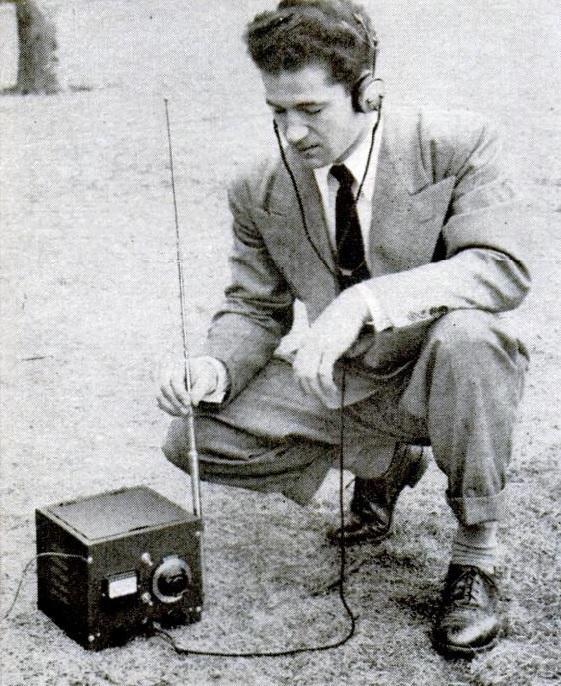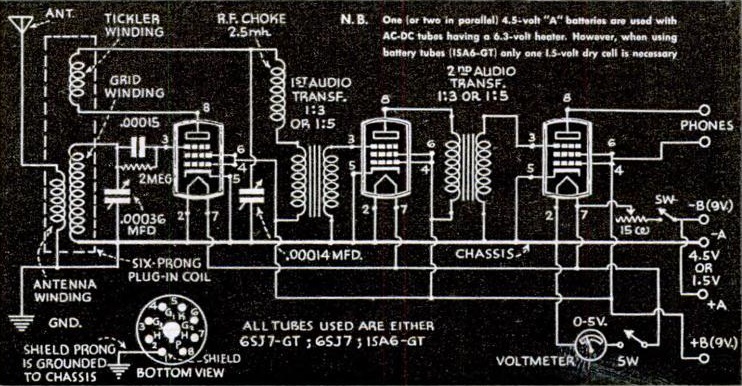 Eighty years ago this month, the July 1942 issue of Popular Science showed how to make this compact emergency receiver, designed to meet the requirements of defense organizations. The key to the design was the elimination of bulky B batteries. Instead, the set used only about 9 volts of plate voltage, and also cut the filament voltage in half.
Eighty years ago this month, the July 1942 issue of Popular Science showed how to make this compact emergency receiver, designed to meet the requirements of defense organizations. The key to the design was the elimination of bulky B batteries. Instead, the set used only about 9 volts of plate voltage, and also cut the filament voltage in half.
The circuit could be used with either metal 6SJ7 tubes or glass 1SA6GT interchangeably. The glass tubes provided better battery economy, but the metal tubes were more durable for rough service in the field. Filament votages were extremely critical. In fact, the circuit would not function at all at the tube’s normal filament voltage. A rheostat was used to get the exact voltage needed.
With suitable plug-in coils, the set could tune from 16 to 1000 meters. One tube served as detector, with the other two amplifying the audio.

